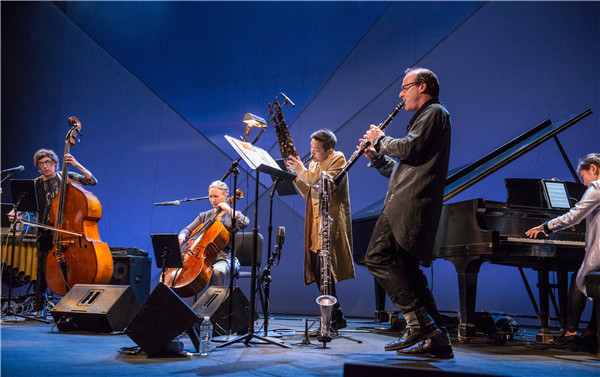 |
|
Chinese folk singer Gong Linna performs in the concert Cloud River Mountain in New York in mid-July. The concert was a collaboration of musicians from the West and East. [Photo provided to China Daily] |
Zollitsch gave each composer the lyrics and a translation of the Chinese myths. "Then they developed their own ideas. It worked much better than I expected," says Zollitsch.
He also brought Chinese sheng (a traditional Chinese wind instrument) player Nie Yunlei to the project for the first time.
"When the sound of the sheng was mixed with Western instruments, such as an electric guitar and clarinet, it functioned as a secret ingredient, powerful and very Chinese," says Zollitsch.
The German composer grew up in Munich, Germany, and came to China on a scholarship to study guqin (the Chinese seven-stringed zither) in Shanghai in 1993.
Before settling down in Beijing, he researched traditional music in the Inner Mongolia and Tibet autonomous regions, while collaborating with a number of Chinese musicians. He met Gong in 2002 and they married in 2004.
In 2009, Gong received rave reviews after she released the song Tan Te (Disturbed) online. Composed by Zollitsch, the song uses sounds rather than words to convey different emotions and moods.
During the past few years, Zollitsch has been working on pieces inspired by poetry of the Tang (618-907) and Song (960-1279) dynasties, hoping to both enliven Chinese music and bring back classical poems to a modern society.
"For years, we have been talking about reviving traditional Chinese music and bringing it to the world. The most important thing is to maintain the unique identity of Chinese music," says Gong.